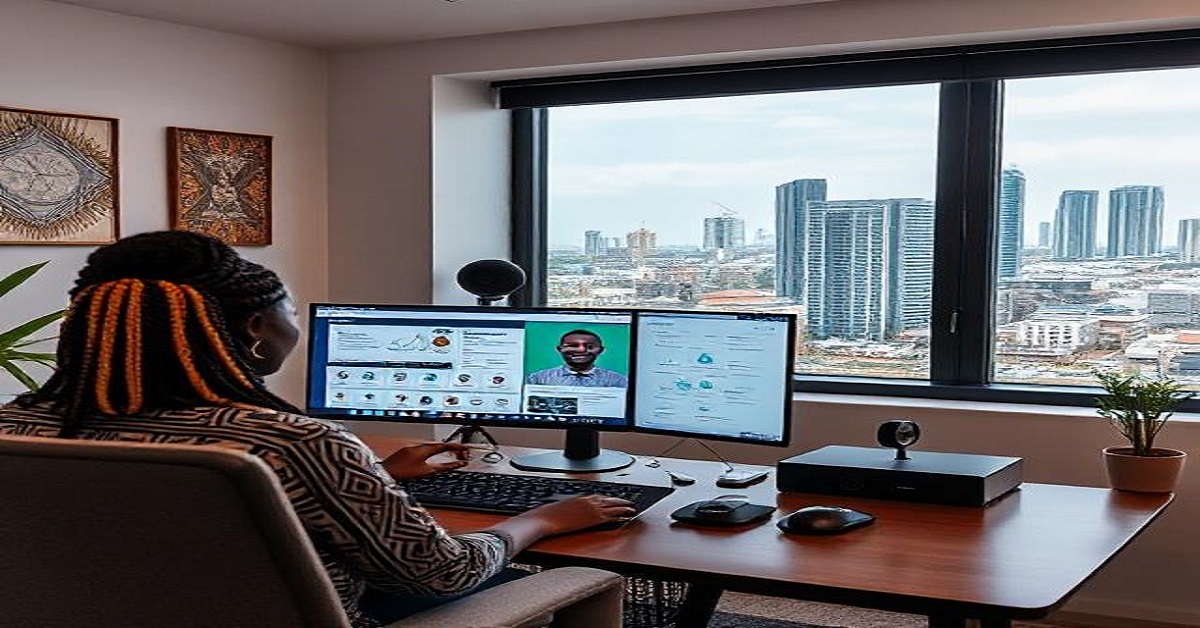
Virtual events have exploded in popularity, and Nairobi is riding the wave. Whether it’s a business conference, webinar, online concert, or a virtual AGM, managing these events seamlessly is a whole different ball game. If you’re hosting or planning to host a virtual event in Kenya’s capital, you’re in the right place.
Let’s dive into 10 must-know tips that will make your virtual event in Nairobi not just successful but unforgettable.
Understanding the Nairobi Virtual Event Landscape
Nairobi is buzzing with tech-savvy youth, startups, and professionals. From Zoom parties during the pandemic to fully-fledged business expos today, the demand for high-quality virtual events is growing.

Read Also:- Hybrid AGM Solutions in Kenya – Transforming Meetings with Technology
Locals frequently use platforms like Zoom, Microsoft Teams, Google Meet, and even Kenyan-specific services like Mookh for ticketing and payments. Understanding what your audience is used to gives you a strategic edge.
Tip 1 – Define Clear Objectives and KPIs
Start with “why.” Are you trying to generate leads? Host a workshop? Raise awareness?
Set SMART goals:
- Specific
- Measurable
- Achievable
- Relevant
- Time-bound
Once you know your target, it becomes easier to track your success and make decisions during planning.
Tip 2 – Choose the Right Virtual Event Platform
Nairobi’s virtual scene often leans on a few reliable platforms:
- Zoom: Best for webinars and meetings
- Microsoft Teams: Corporate audiences
- Hopin or Airmeet: Full-feature virtual conferences
Look for features like:
- Breakout rooms
- Polls and Q&A
- Integration with CRMs
- Local language support if needed
Pro tip: Try free versions before committing.
Tip 3 – Plan for Internet Stability
Let’s face it—Kenya’s internet can be unpredictable. Always have:
- Backup Wi-Fi (like Faiba or Safaricom 4G)
- Offline slides/videos in case of disconnection
- An event host located in a high-connectivity area
This one step can save your reputation.
Tip 4 – Engage with Professional Virtual Event Planners
If it’s your first rodeo, don’t go it alone. Nairobi is home to fantastic event managers specializing in digital experiences.
They help with:
- Tech setup
- Rehearsals
- Managing live sessions
- Post-event reporting
Hiring experts saves time and avoids embarrassing technical glitches.
Tip 5 – Design Interactive and Visually Appealing Content
Nobody wants to watch boring slides for two hours. Spice it up with:
- Animations and videos
- Real-time polls
- Chat interactions
- Eye-catching graphics
Tools like Canva, Prezi, or OBS Studio can help you make things pop.
Tip 6 – Rehearse Like It’s the Real Thing
You wouldn’t go on stage without a rehearsal—so don’t do that virtually either.
Run a mock event:
- All speakers should join
- Test screen sharing, audio, video
- Check lighting and background
Catch the awkward pauses and tech hiccups before the audience does.
Tip 7 – Promote Aggressively Before the Event
A great event with no attendees is a waste. Get loud:
- Post teasers on Instagram, LinkedIn, Facebook
- Collaborate with Kenyan influencers
- Run targeted ads
- Use SMS and email marketing
Remember to localize your message. Kenyans love relatable content!
Tip 8 – Provide 24/7 Tech Support During the Event
Glitches will happen. Be ready with:
- A WhatsApp support line
- Live chat window
- Pre-written responses for common issues
- A contactable IT support person on standby
Nothing ruins an event like being stuck with no help.
Tip 9 – Gather Feedback Post-Event
Don’t assume—it’s better to ask. Feedback reveals what worked and what didn’t.
Use:
- Google Forms
- Typeform
- Slido during the session
Ask about tech quality, speakers, engagement, and suggestions. Use the info for your next big event.
Tip 10 – Analyze & Repurpose Your Content
Don’t let that amazing webinar die. Repurpose:
- Upload the recording to YouTube or your site
- Cut short clips for TikTok, IG Reels
- Turn the Q&A into a blog post
It’s like turning one meal into a week’s worth of leftovers 
Common Challenges in Virtual Event Management in Nairobi
- Power outages (invest in a UPS)
- Internet disconnections (have mobile data ready)
- Mobile money integration (ensure M-Pesa works seamlessly)
- Lack of tech know-how (hire experts when possible)
Benefits of Hosting Virtual Events in Nairobi
- Cost Savings: No venue or catering
- Massive Reach: Global audience from your Nairobi office
- Flexibility: Record and replay anytime
- Inclusivity: Great for people who can’t travel or prefer remote options
Conclusion
Running a successful virtual event in Nairobi isn’t rocket science, but it does require thoughtful planning and the right partners. From choosing the best platform to dealing with connectivity hiccups, these 10 tips will keep your event on track and your audience engaged.
So go ahead—host that webinar, throw that virtual summit, or launch your product live online. Nairobi is more than ready for it.
FAQs
1. What are the most reliable virtual event platforms in Nairobi?
Zoom, Microsoft Teams, and Hopin are top choices, with great local support and familiarity.
2. How do I handle payment integration for ticketed events in Kenya?
Use M-Pesa-friendly tools like Mookh or Pesapal for easy, secure payments.
3. What’s the best time to host virtual events for a Nairobi audience?
Mid-morning (10 AM – 12 PM) or early evening (6 PM – 8 PM) tend to have higher engagement.
4. How can I find a trusted virtual event planner in Nairobi?
Search on platforms like LinkedIn or Google with reviews, or try local directories like Pigiame or BrighterMonday.
5. Are hybrid events better than fully virtual ones in Kenya?
Depends on your audience. Hybrid events add physical presence but increase cost and logistics. Fully virtual is cheaper and more flexible.